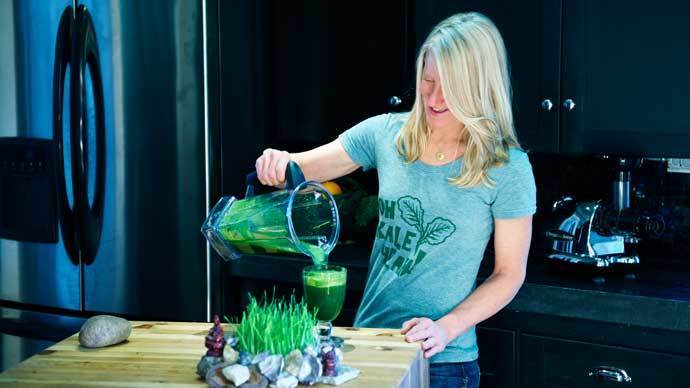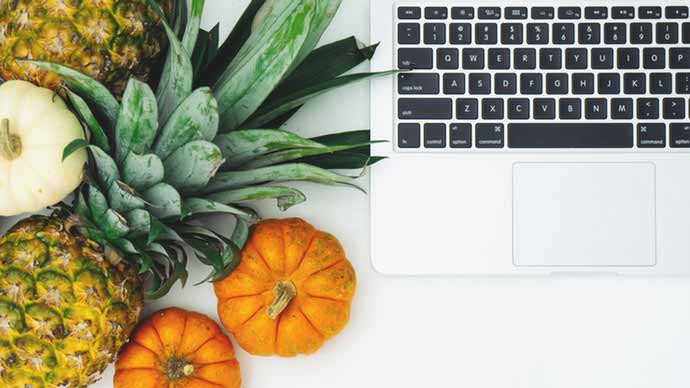This is a shout-out to all the women and girls working on liking their bodies. This s— is hard.
Why? Because today’s perfectionist, weight biased body culture feeds our dissatisfaction.
It fuels poor body image by spreading the conventional “wisdom” that healthy equals thin and fat is bad.
“Diet culture leads most women to see themselves as ‘too big’ and makes it difficult for people in larger bodies to feel they don’t need to shrink themselves,” says Christy Harrison author of “Anti-Diet.”
It’s become normal for women and girls to obsessively count carbohydrate grams and to anxiously pursue 10,000 steps on their Fitbits, all to manipulate what we believe are our bad bodies.
And we’re doing this to become … healthier?
We believe we must avoid weight gain or lose weight — at any and all costs — if we want to be happy, loved and have a body that’s accepted by diet culture.
“I truly believe that for the vast majority of the population, managing or losing weight is not about health but about a fear of not being accepted by others,” says body acceptance coach Kristina Bruce.
“A much bigger health concern we have on hand here is the staggering number of people who feel shame about their bodies. The only time I don’t like how my body looks is when I fear what other people will think of it. This tells me once again — my body is not the problem.”
Agreed. Your body isn’t the problem.
The problem is we view our bodies through the lens of a $72 billion diet culture that stigmatizes weight.
Harrison explains that weight stigma “frames larger bodies as a problem and tells people that they need to shrink themselves in order to be okay, which is the very definition of weight stigma.”
Virgie Tovar, an activist, author and one of the nation’s leading experts and lecturers on fat discrimination and body image, explains how weight bias affects us all through what she describes as three levels of weight stigma: intrapersonal, interpersonal and institutional.
Intrapersonal is how much you internalize the negative stereotypes about weight.
“The fact that we pretty much all have some level of intrapersonal weight stigma in our society is one of the hallmarks of living in diet culture,” Tovar says.
Second, interpersonal weight stigma is how you are treated based solely on weight or size — such as body shaming or bullying.
Lastly, institutional fat phobia describes how larger bodies are marginalized in society. For example, if you go to buy a ski jacket and the only color in your size is black or you have to buy a men’s jacket.
Weight stigma makes it difficult to like your body unless you are “lucky” enough to be one of the 5% of women who naturally possess the “ideal” body type. And even many of those women live in fear of weight gain.
Furthermore, evidence-based research shows that not only is weight stigma harmful to our body image, but feeling bad about our bodies is affecting our health, regardless of body size.
“I Think Therefore I Am: Perceived Ideal Weight as a Determinant of Health,” a 2008 study published in the American Journal of Public Health, found that the larger the difference between people’s current weight and their perceived “ideal” weight, the more mental and physical health problems they’d had in the past month, regardless of their body mass index. The study included 170,000 people of a variety of races, education levels and ages.
One major reason weight stigma is so harmful is that it’s so darn stressful for everybody, but especially for those living in larger bodies.
“Stress hormones … can have damaging effects on both physical and mental if they are secreted over a longer period of time called allostatic load,” writes David Levitin in his article “The Neuroscience Behind Why We Feel Stressed — and What to Do About It.”
That leads to a dysregulation in critical body systems — including the immune, digestive, cognitive, reproductive systems — and creates cardiac and mental health problems.
A 2018 study found that “perceived weight discrimination doubles the 10-year risk of high allostatic load. Eliminating weight stigma may reduce physiological dysregulation, improving obesity-related morbidity and mortality.”
Research by Harrison — the “Anti-Diet” author — comes to the same conclusion: “Weight stigma has been linked to an increased risk of mental-health conditions such as disordered eating, emotional distress, negative body image, low self-esteem and depression.”
If you’ve felt “so much better” after weight loss — especially after living in a larger body — could it be the result of no longer experiencing weight stigma and not necessarily the weight loss itself? It’s a question Bruce has asked.
So, ladies, here’s my shout-out to help you like your body: Don’t buy into diet culture’s weight stigmatizing. I’ll stand with you.
I’d also like to leave you with words of wisdom from poet Hollie Holden:
Today I asked my body what she needed,
Which is a big deal
Considering my journey of
Not Really Asking That Much.
I thought she might need more water.
Or protein.
Or greens.
Or yoga.
Or supplements.
Or movement.
But as I stood in the shower
Reflecting on her stretch marks,
Her roundness where I would like flatness,
Her softness where I would like firmness,
All those conditioned wishes
That form a bundle of
Never-Quite-Right-Ness,
She whispered very gently:
Could you just love me like this?
(This article was published in the Jackson Hole News and Guide, February 5, 2020 edition).




